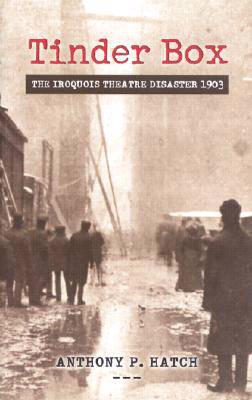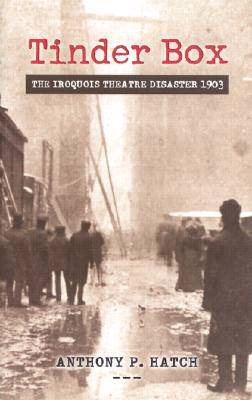
- Retrait gratuit dans votre magasin Club
- 7.000.000 titres dans notre catalogue
- Payer en toute sécurité
- Toujours un magasin près de chez vous
- Retrait gratuit dans votre magasin Club
- 7.000.0000 titres dans notre catalogue
- Payer en toute sécurité
- Toujours un magasin près de chez vous
34,95 €
+ 69 points
Format
Description
This the 100th anniversary of one of worst man-made disasters of the 20th century. When the Iroquois Theatre opened in Chicago on November 23, 1903, it was considered one of the grandest structures of its day, a monument to modern design and technology, as well as "absolutely fireproof." This was a theatre that would rival any in New York or Paris. Instead it became the funeral pyre for hundreds of victims. Tony Hatch, former CBS reporter and Emmy Award winner, tells the grisly story in meticulous, riveting detail, based on more than forty years of research, including many exclusive interviews with eyewitnesses. In Tinder Box, he tells the Iroquois story as it has never been told before. In a rush to open the theatre on time, corners were cut, and the Iroquois lacked the most basic fire-fighting equipment: sprinklers, fire alarm boxes, backstage telephone, exit signs and functioning asbestos curtain. Some exists, for aesthetic reasons, were hidden behind heavy draperies, doors opened inward and exterior fire escapes were unfinished. But Chicago officials, the theatre owners and managers, the contractor, stagehands--all looked the other way. Then, on December 30, 1903, disaster struck. The theatre was packed, overcrowded with a standing-room-only audience, mostly women and children who had come to see the popular comedian Eddie Foy perform in the musical fantasy Mr. Bluebeard. A short circuit in a single backstage spotlight touched off a small fire that, in minutes, erupted into an uncontrollable blaze. More than 600 people died. Because of the magnitude of the catastrophe and the obvious corruption that allowed it to happen, building and fire laws were changed to prevent it everhappening again. Tinder Box is a riveting history of a traumatic and costly calamity.
Spécifications
Parties prenantes
- Auteur(s) :
- Editeur:
Contenu
- Nombre de pages :
- 250
- Langue:
- Anglais
- Collection :
Caractéristiques
- EAN:
- 9780897335140
- Date de parution :
- 30-08-05
- Format:
- Livre relié
- Format numérique:
- Genaaid
- Dimensions :
- 145 mm x 228 mm
- Poids :
- 498 g

Les avis
Nous publions uniquement les avis qui respectent les conditions requises. Consultez nos conditions pour les avis.






